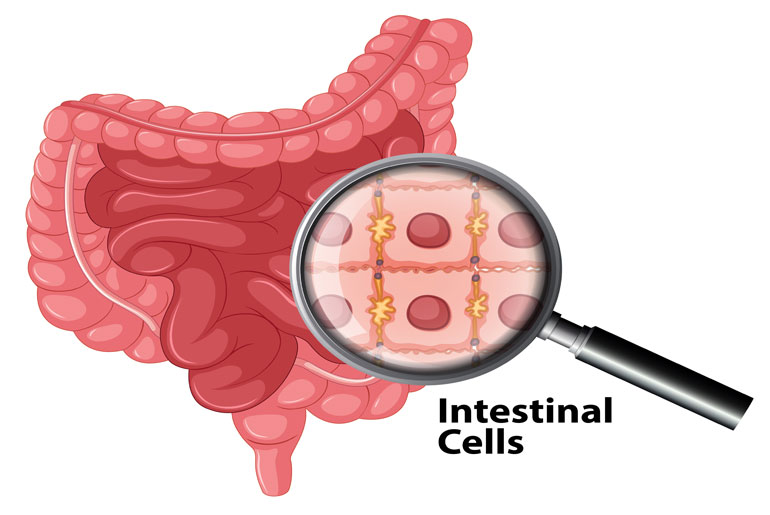According to a new study by researchers from the University of California San Diego School of Medicine it has been found that the human gut is home to 500 to 1,000 different bacterial species, which might total 100,000 trillion germs. The researchers used mouse models to examine how diet and feeding habits affect these intestinal microbes and the health of the hosts, particularly with obesity and type 2 diabetes.
The findings of the research were published in Cell Reports on July 5, 2022.
In both mice and men, it is found that the ileum is the final stretch of the small intestine, connecting to the cecum, which is the first part of the large intestine. In the ileum, nutrients are drawn out of liquefied food; in the cecum, which also marks the beginning of the colon, the process of extracting water begins here. Both processes are complex, dynamic and profoundly influenced by factors ranging from the types of foods consumed and when, to the microbial residents of the gut, whose presence and behaviours help dictate digestion, absorption of nutrients, vitamin synthesis and development of the immune system.
Senior study author Amir Zarrinpar, MD, PhD, assistant professor of medicine at UC San Diego School of Medicine and a gastroenterologist at UC San Diego Health said, “It’s important to realize that the gut microbiome is constantly changing, not only based on what we’re eating, but also based on the time of day.”
He added saying, “Most researchers are getting snapshots of this constantly shifting environment, which makes it hard to understand what is going on in the gut. With this study, we are trying to get multiple snapshots throughout the day, almost like a movie, to better understand how food and the microbiome interact to affect weight gain and diabetes. And what we’ve learned is that cyclical changes in the gut microbiome are quite important for health since they help with the circadian clock, and with that the regulation and control of glucose, cholesterol and fatty acids and overall metabolic health.”
In their rearmost work, Zarrinpar and associates further interpret the impact and interplay of these factors, particularly in terms of the ileum and its unique functions related to digestion and immersion. Specifically, they looked at how diet-convinced rotundity (DIO) and time-confined feeding (TRF) alter ileal microbiome composition and transcriptome (the protein-rendering part of an organism’s genome) in mouse models.
The experimenters set up that in mouse models, DIO and the absence of TRF redounded in dislocations to gut microbiome measures and the signalling pathways that help modulate intestinal timepieces. In other words, the mice came fat and unhealthy.
Furthermore, regards to this study, Ana Carolina Dantas Machado, PhD, a postdoctoral scholar in Zarrinpar’s lab said, “It is interesting that restricting food access with TRF acts not only through restoration of patterns affected under the unhealthy state, but also through new pathways. These findings underscore the influence of diet and time restricted feeding patterns in maintaining a healthy gut microbiome, which in turn modulates circadian rhythms that govern metabolic health.”
Disclaimer:
The information contained in this article is for educational and informational purposes only and is not intended as a health advice. We would ask you to consult a qualified professional or medical expert to gain additional knowledge before you choose to consume any product or perform any exercise.








